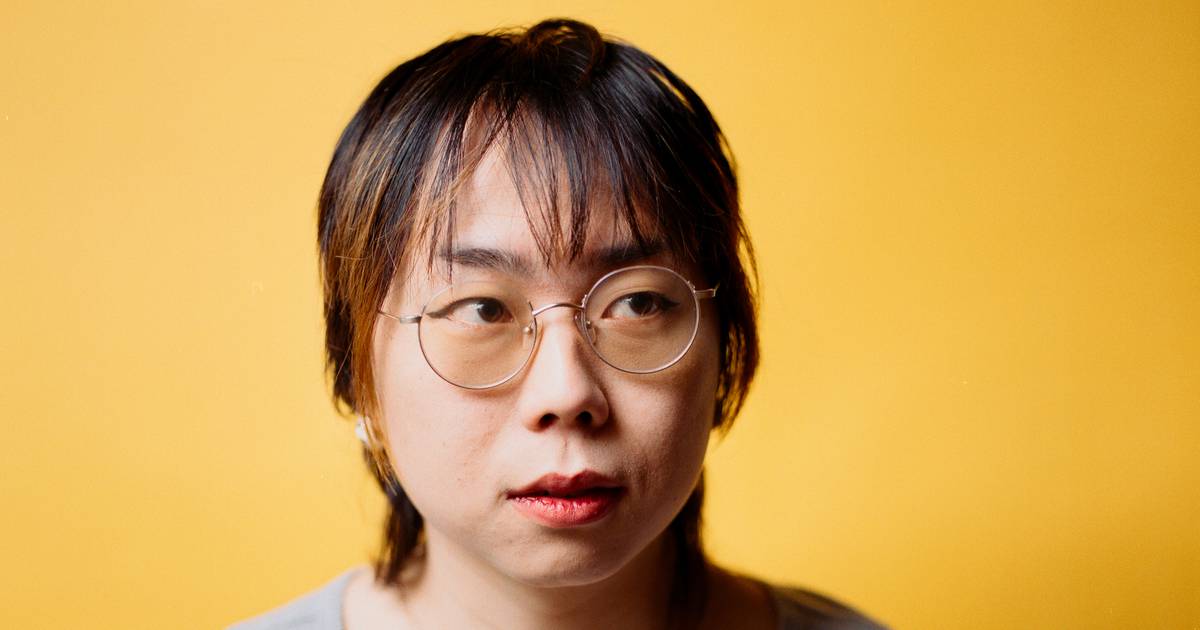
Kaho Matsui didn’t record and release music until three years ago, but the Portland artist’s discography has already grown to epic scale. Her Bandcamp page averages one release a month, and her stylistic breadth is staggering, from ambient music based on field recordings to rave music with dizzying drum programming.
You’d be forgiven for seeing this prolificacy as a way to make up for lost time, but the 26-year-old sees all her work as part of an ongoing thread that reflects the events in her life at the moment the music was made.
“I take it as a journaling situation,” Matsui says. “I don’t spend over a week on an album because I want it to be like, here’s what’s going on right now.”
Amid this dense cloud of albums, EPs, singles, collabs, and one-offs, her new album, No More Losses, stands out. It’s her first release of 2023, clocks in at a robust 45 minutes, and is chock-full of collaborations with other musicians from her circle of friends and beyond.
Though the density of guests might seem like a way to establish No More Losses as a sort of tentpole release, standing above the shorter and jokier projects with which it rubs elbows on Bandcamp, there’s a reason for its collab-heavy approach that ties in with Matsui’s diaristic style.
“I’m trying to move out of Portland by the end of the summer,” Matsui says. “And then I think about if I move and then something happens and I miss it. I’ve severed a lot of ties with people since moving here. I’d like to not lose any more things—material objects or interpersonal relationships.”
The idea, then, was to make a record with friends. “Come and See” features artists Kevlar Wedding Dress, Snairhead and Wyatt Murphy, all of whom are roommates of Matsui’s girlfriend.
“They’re all great musicians,” Matsui says. “If I move at the end of this year and still haven’t recorded music with them, it becomes like a situation of, hey, we should record music sometimes, and we all blank on it. So I wanted to make a core memory, I guess.”
Among the album’s nine credited features, the name most people versed in the world of experimental music will recognize is that of More Eaze, aka Mari Maurice Rubio, the Austin-based artist known for her eclectic catalog and use of the violin to create a one-person orchestra, as she does on Losses’ “I Want to Leave Right Now.”
“I’ve looked up to [Mari] for so many years, so it’s kind of surreal that she was like, ‘Oh, I listened to your music, it’s amazing,’” Matsui says. “And I’m like, ‘No way.’ And then she’s like, ‘We should collab.’”
More Eaze’s music has been pegged as “emo ambient,” after the style of rock music that emphasizes emotional expression. Matsui feels a kinship with the term as well. Though Matsui says her music is more “emo in how I’m presenting an idea, not directly referencing emo music,” her guitar playing is influenced by the spindly style pioneered by Midwestern emo bands like American Football.
Yet to listen to Matsui’s music is to engage with nearly everything that’s entered her ears in her 26 years on earth. Matsui was born in Japan to a musical family; her mom was a piano teacher, and her brother is a “prodigy person” with a degree in jazz studies. Growing up, she enjoyed metal and electronic dance music, both of which still influence her work.
“Things like metal and EDM have a very cut and clear ‘here’s where it builds up, here’s where it drops,’” she explains. “I love that, it’s one of my favorite things. I love a drop.”
In elementary school, Matsui and her family moved to San Jose. When she turned 18, she moved to Portland and got a grueling job at Legacy Emanuel Hospital cleaning operating rooms and playing shows of “harsh noise music” when possible.
“Working at the hospital I made a lot of money, and I was like, oh, this is great, I should be, like, really happy with my life,” Matsui says. “And I was doing really bad.”
This routine defined Matsui’s early days in Portland: playing gigs, working long hours, moving back and forth between Oregon and the Bay Area. “I had no friends, I wasn’t doing anything other than work,” she said. She quit her job around the same time a group of friends from the Bay Area came up for a rave and stayed at her house.
“We talked a lot about making music, and a lot of the people that stayed at my house were in bands or doing recording projects,” she says.
Some of these friends were part of a label called Norm Corps, for which Matsui has made several recordings—including S/T, a tribute to Norm Corps co-founder Paris Alexander, aka Golden Boy, who passed away in 2021 and enjoyed the sort of uptempo, polyrhythmic rave music that comprises the bulk of the album.
With the support of her friends and ample time on her hands to create music, Matsui had a revelation: This is what I want to do. She’s still doing it, and by the time you read this, it’s likely she’ll have two more albums up.
“I want people who are listening to my music to understand that this is all stuff that’s happening,” Matsui says. “And if I don’t release music for two months, it’s just that nothing is going on.”